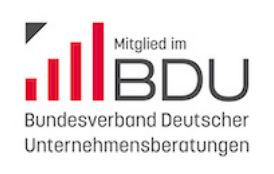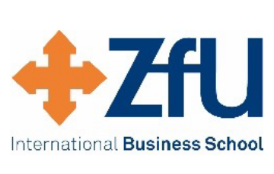Cooperation
Cooperation as a success factor
To solve complex problems in an environment characterized by uncertainty, the ability and willingness to cooperate across functions is becoming increasingly important.
Our offer
Self-organization – paradoxically – does not succeed „on its own“ and requires a very specific form of leadership. New forms of collegial leadership play a decisive role here. At the same time, it is necessary to develop a motivating and meaningful vision of goals, define clear roles in the team, establish appropriate standards and rules of play, develop a climate of psychological security, recognize conflicts early on and address them openly, give each other very honest and appreciative feedback, recognize and use individual inclinations and strengths, and appreciate diversity.
Willingness and ability to cooperate always become a decisive competitive advantage: within one’s own team, cross-functionally, in projects, in matrix constellations, with customers or suppliers, but also with external development or project partners. In our workshops and trainings, we work on the specific skills that promote cooperation as well as on the self-image/mindset that puts the WE at the center. We support managers in setting a credible example of cooperation and in changing and designing structures and processes to promote cooperation.
Teamwork is indispensable today even without extensive team development processes. „Teamplaying“ is part of the basic equipment of employees, which has to be realized immediately and in changing constellations (team-internal and cross-team). This also includes cross-location cooperation, often in an international context. The dimensions that comprise team competence are developed and practiced in our workshops. Systemic factors such as structures, processes and interactions are also taken into account. An important component is the clear definition of roles (tasks, competencies, responsibilities). But also the own mindset for the promotion of top performance, so that a motivation-effective dynamic and added values are created by the cooperation. The workshop covers the basic requirements for team performance as well as the management of difficult situations such as conflicts or external influences.
Today, complex problem solving, innovation and development can only succeed in a cross-functional way. In our workshops, the functions involved work on overcoming their own functional logic in favor of a common overarching goal, questioning their own „silo thinking“, turning so-called „interfaces“ into actual „seams“, developing new patterns of thought and action, and displaying the necessary degree of altruism that is essential for successful cooperation.
Growing together also means growing together. Shared values, sympathy (the famous „nose factor“) as well as a positive basic attitude and trust help newly formed teams to perform quickly. At the same time, teams that have already been in existence for a longer period of time should regularly put their cooperation to the test in order to eliminate any hardening, unfavorable habits and areas of tension that have arisen. Analysis from the „eagle’s eye view“ is part of this, but so are specific experiential processes geared to the team’s requirements. In this sense, our events generate a boost in motivation, more clarity of purpose and attractiveness of the team. New people and changing tasks can thus be integrated even more flexibly.

